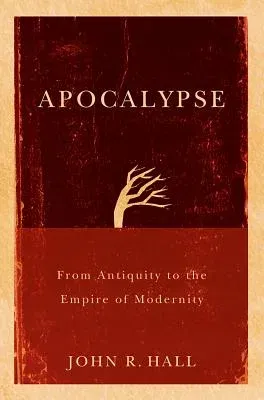John R Hall
(Author)Apocalypse: From Antiquity to the Empire of ModernityHardcover, 27 July 2009

Qty
1
Turbo
Ships in 2 - 3 days
In Stock
Free Delivery
Cash on Delivery
15 Days
Free Returns
Secure Checkout

Print Length
296 pages
Language
English
Publisher
Polity Press
Date Published
27 Jul 2009
ISBN-10
0745645089
ISBN-13
9780745645087
Description
Product Details
Author:
Book Format:
Hardcover
Country of Origin:
GB
Date Published:
27 July 2009
Dimensions:
24.64 x
17.27 x
2.03 cm
ISBN-10:
0745645089
ISBN-13:
9780745645087
Language:
English
Location:
Cambridge, England
Pages:
296
Publisher:
Weight:
521.63 gm